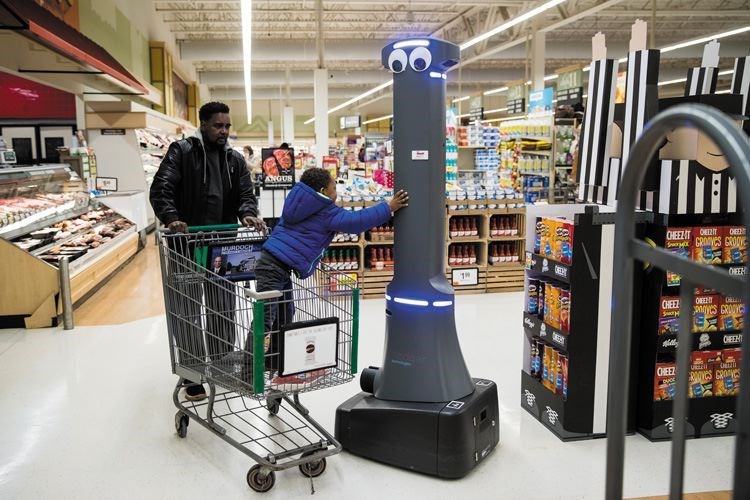Maybe it was the Jetsons.
Or maybe it was Blade Runner.
There are no flying family cars and that seems as far off in the future as it did watching Saturday morning cartoons in the 1970s.
There are no robots so clever as being human that they can run away from their slave work and hide amongst the human population, as a 1982 sci-fi movie starring Harrison Ford predicted would be the case... in 2019.
That being said, the degree automation has transformed the world has been remarkable, revolutionizing everything from manufacturing and communications to transportation and finance. Strangely, however, so many people will look up from their phones after having scheduled bill payments and answered the doorbell at their home while at work to insist that driverless cars will never come to Prince George and that robots will never take their jobs.
The world's major automakers, along with Google, Apple and other technology companies with deep pockets and big ideas, aren't spending billions of dollars every year just for the fun of seeing whether driverless cars are possible. Much of the technology already exists and is in use, from mass transit trains and auto-pilot on planes, including both landing and takeoff, to cars that can park themselves, alert drivers to danger and automatically brake to prevent accidents.
Driverless cars and other forms of automation are going to become an increasing part of our lives. That will spark some interesting (and stressful) changes to society and the economy but the real lifestyle transformation will be for seniors, those with physical challenges and the people with chronic health conditions.
Those born before the moon landing have quickly separated the mostly useless technology (social media, gaming) from the mostly useful tools that connect them to their loved ones and offer real-time information on the weather, the road conditions, their social schedule, their bank account balance, their investment portfolios and breaking news.
For able-bodied individuals, streaming movies and TV shows at home is a convenience. For those with physical handicaps or illness that makes it difficult to leave home, especially during winter, Netflix and Crave are lifesavers. But that's just the beginning.
Home assistant devices like Google Home and Amazon Echo are in the process of expanding the independence of the elderly and anyone who requires active full or part-time resident care, from reminding people to take their meds to calling 911 when the assistant asks the homeowner repeatedly to respond and he or she doesn't answer. Combine that with programmable thermostats, floor cleaning robots and fridges that know when they're empty and will either alert the homeowner or place a delivery order to the grocery store.
Again, that's already existing tech.
And that's just at home.
Driverless cars represent the true breakthrough for seniors, the blind and those who require significant special alterations to the automobile before they can drive. Driverless cars can take them where they want to go and when.
While many people will moan about the loss of independence driverless cars will bring, what they'll be really complaining about is not being able to speed, tailgate and drive like a jerk. Meanwhile, others will gain so much more control of their movements away from home. Gone will be the days of waiting for the bus or calling a cab.
Gone will be the days of seizing the driver's licence of 85-year-olds and stripping them of their dignity and self-reliance at the same time.
The demands of the baby boomer generation have driven so many technological advances in the past 50 years in a never-ending pursuit to satisfy their never-ending demands. As they move into their 70s and 80s, they will lead the demand for driverless cars and the rest of the world will follow along. From there, the same technology will take over short and long-haul trucking, as the retail and commercial sector are always on the lookout for the opportunity to reduce costs and boost profit margins.
Teenagers of today, don't get too excited about getting your driver's licenses. Before you know it, those cards will be as obsolete as Ataris.
-- Editor-in-chief Neil Godbout



